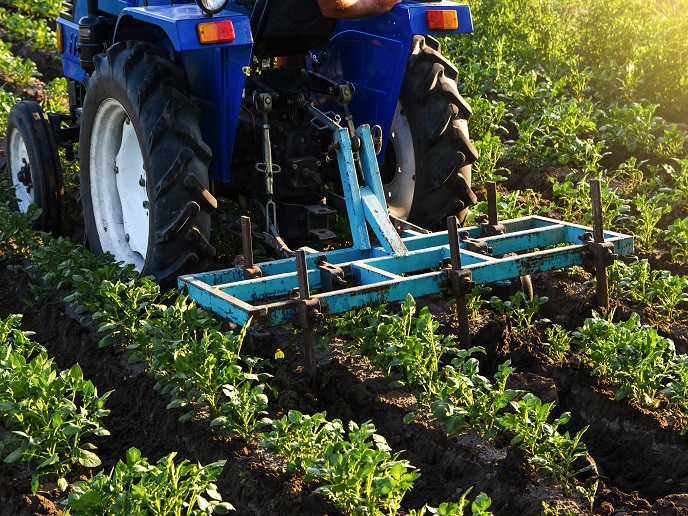A tool to help farmers control weeds without relying on herbicides
Weed management is a critically important element of farming. Unwanted plant growth can negatively impact crop yields, interfere with production practices and contaminate the harvested crop, impacting yields negatively. While famers have traditionally applied herbicides to control weeds, over-reliance on herbicides has contributed to not only the pollution of soils and the environment, but also the development of herbicide-resistant weeds. This practice is no longer sustainable. It is vital that new weeding practices are introduced. They must be sustainable, not only for environmental reasons but also to ensure the economic viability of farming in Europe. One such agroecological approach is integrated weed management (IWM), which has been supported and developed through the IWMPRAISE (Integrated Weed Management: PRActical Implementation and Solutions for Europe) project.
Identifying herbicide replacements
“The key to IWM is that it uses multiple control tactics,” explains IWMPRAISE project coordinator Per Kudsk from Aarhus University in Denmark. “The idea is to implement a range of methods, in order to give producers the best chance of controlling troublesome weeds without resorting to herbicides.” Some of these strategies might be preventive, such as delayed sowing, field margin management, dead mulching and covering crops. Other strategies designed to reduce the impact of weeds on crops include competitive crops, mechanical weed control and focusing on nutrient placement. A challenge however is that no single tool or strategy is as effective on its own as herbicides. The solution is to find ways of combining different approaches throughout the growing season, in order to deliver a comparable effect without the need for chemicals.
Testing viable weed strategies
The key objective of IWMPRAISE was to help agricultural communities identify practical IWM solutions suited to their specific contexts. To achieve this, the project team worked closely with farmers, their advisors, and SMEs to find solutions acceptable to them. “We began by sitting down with farmers and advisors, to get a better idea of their way of thinking when it comes to IWM,” says Kudsk. “We also looked at the economic viability of IWM, as well as the long-term impact on issues such as biodiversity.” National clusters in each of the eight participating countries were formed, bringing farmers, suppliers and agricultural experts together to test various strategies over a 3-year period. “We trialled strategies such as delaying the sowing of particular crops,” notes Kudsk. “This reduced weed germination and made them easier to kill before sowing crop seeds.” In terms of weed control, mechanical methods were also tested as alternatives to herbicides. “All this means that while no single solution is 100 % effective, together they can significantly reduce weed infestation,” he says.
Encouraging farmers to adopt IWM
Out of this work, the project team was able to develop a web-based IWM tool, now freely available for anyone to access. Users can log on, select which crop group they are growing, and find a visual representation of possible alternatives to herbicides. “The tool provides an overview of alternatives for tackling weeds at different stages,” explains Kudsk. “Different colours are used to indicate which stage in the life cycle you are addressing.” Green for example indicates solutions to prevent the establishment of weeds; grey indicates solutions to reduce their impact on crops; while orange indicates ways of reducing weed seeding. “Our hope is that this tool will encourage farmers to adopt IWM,” says Kudsk. “This is really important, as spraying herbicides year after year increases the risk of herbicide resistance. What’s more, there are no new herbicides coming to the market, and EU legislation means that many existing products will disappear. This is why new weed management strategies are needed.” The project has also developed websites for each partner country in the national language, in order to reach as many farmers as possible. Each website contains results on the field trials, inspiration sheets and inventories of non-chemical inputs.
Keywords
IWMPRAISE, agroecological, herbicides, chemical, weed, IWM, biodiversity, crops, nutrient, tool



